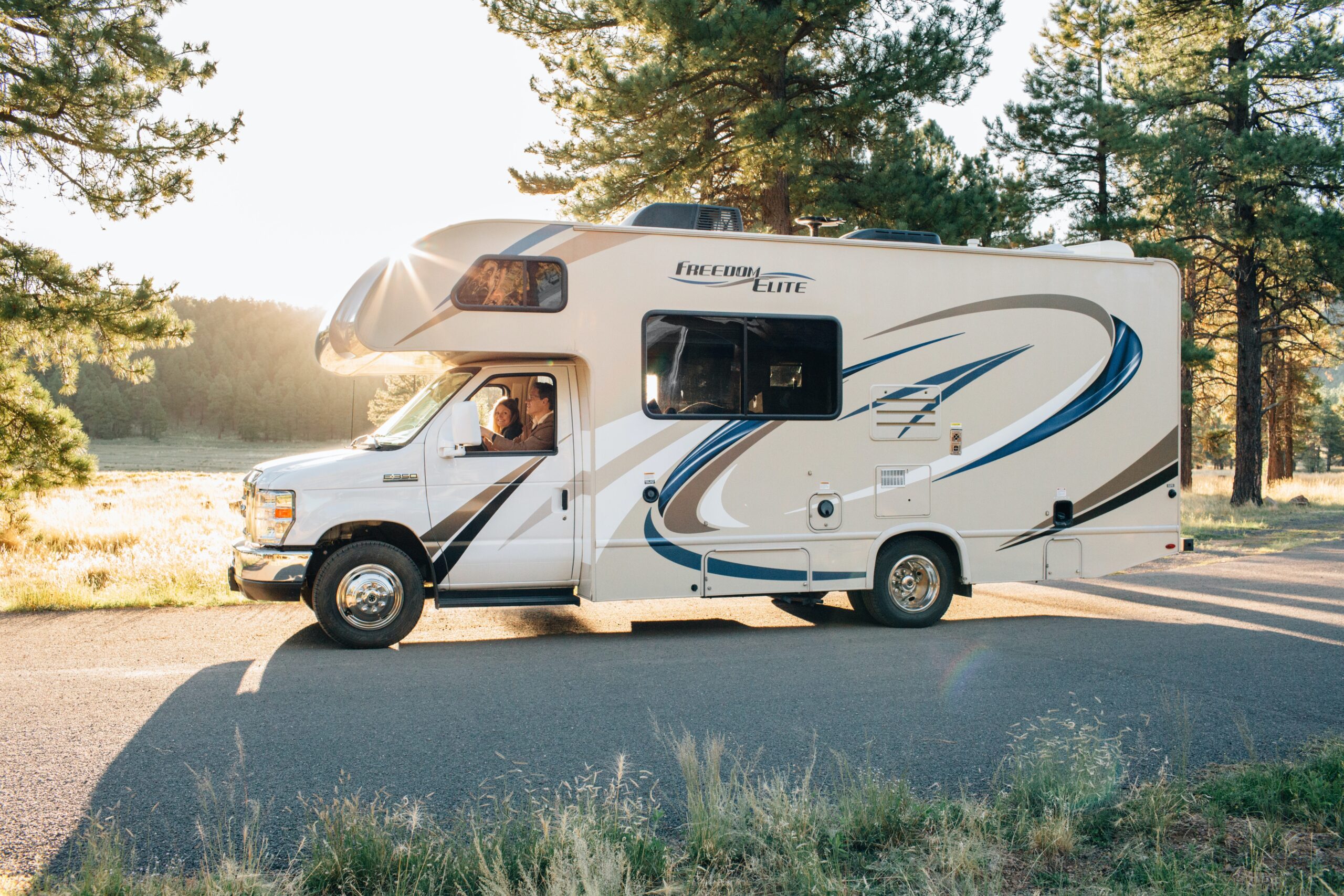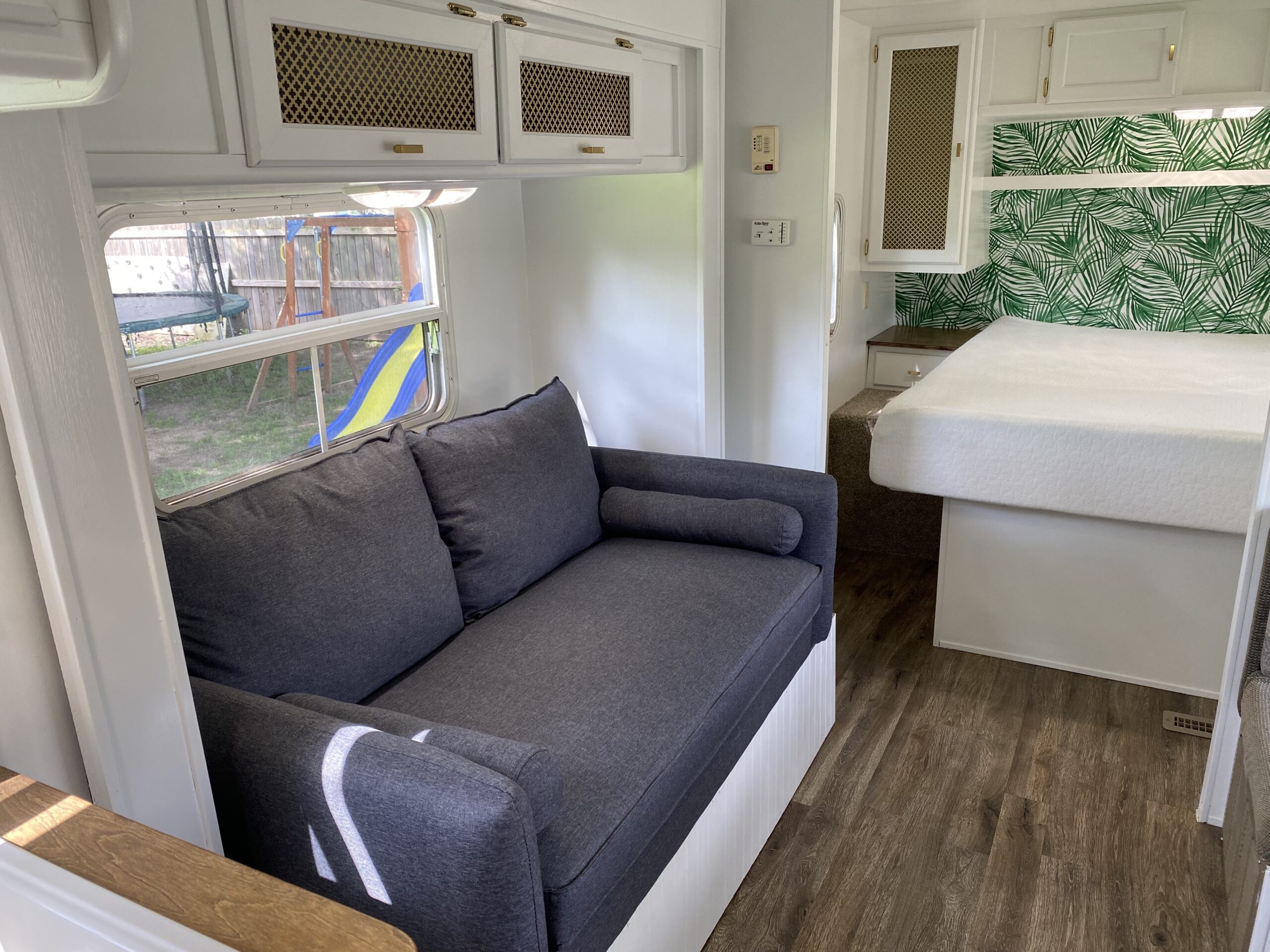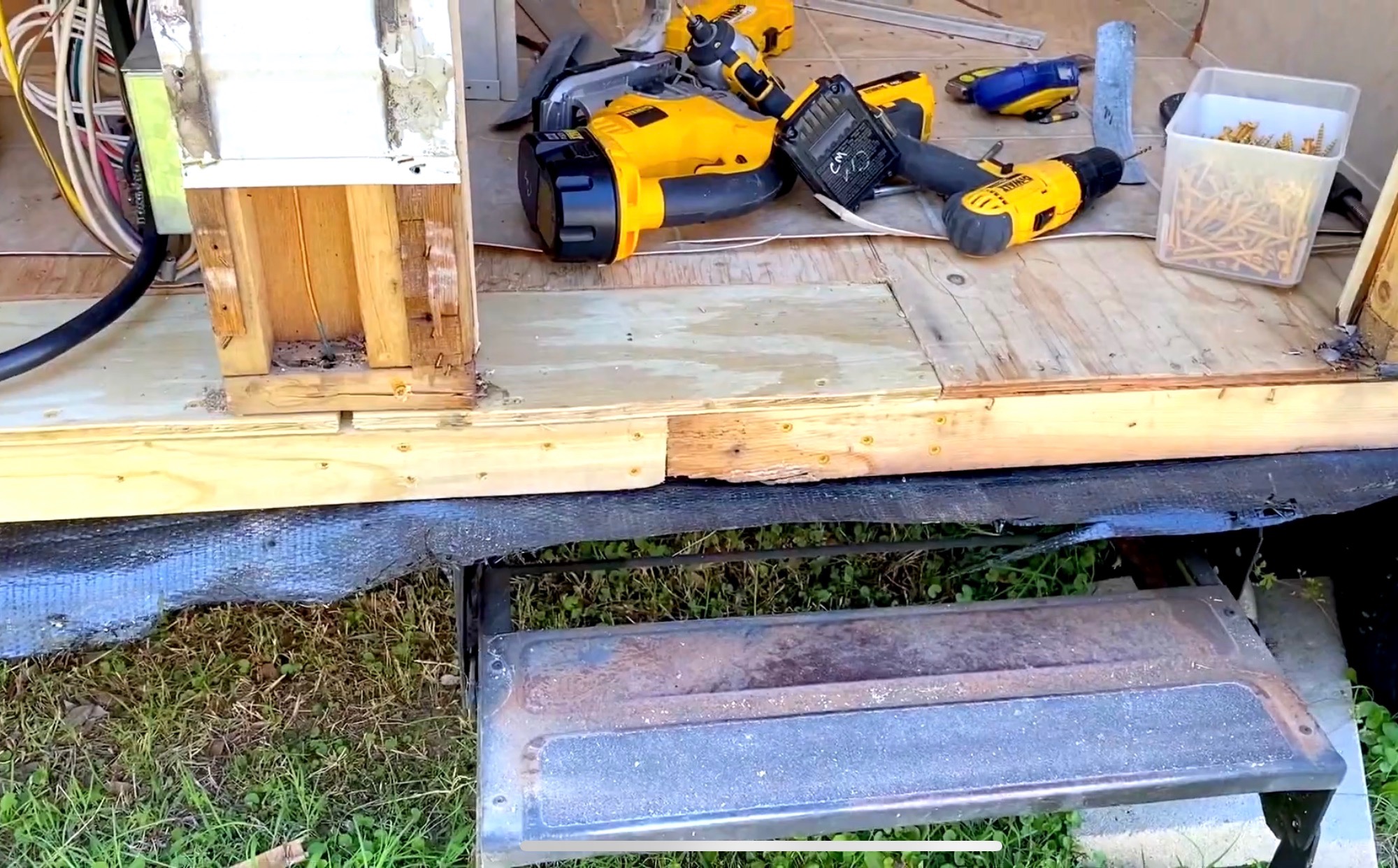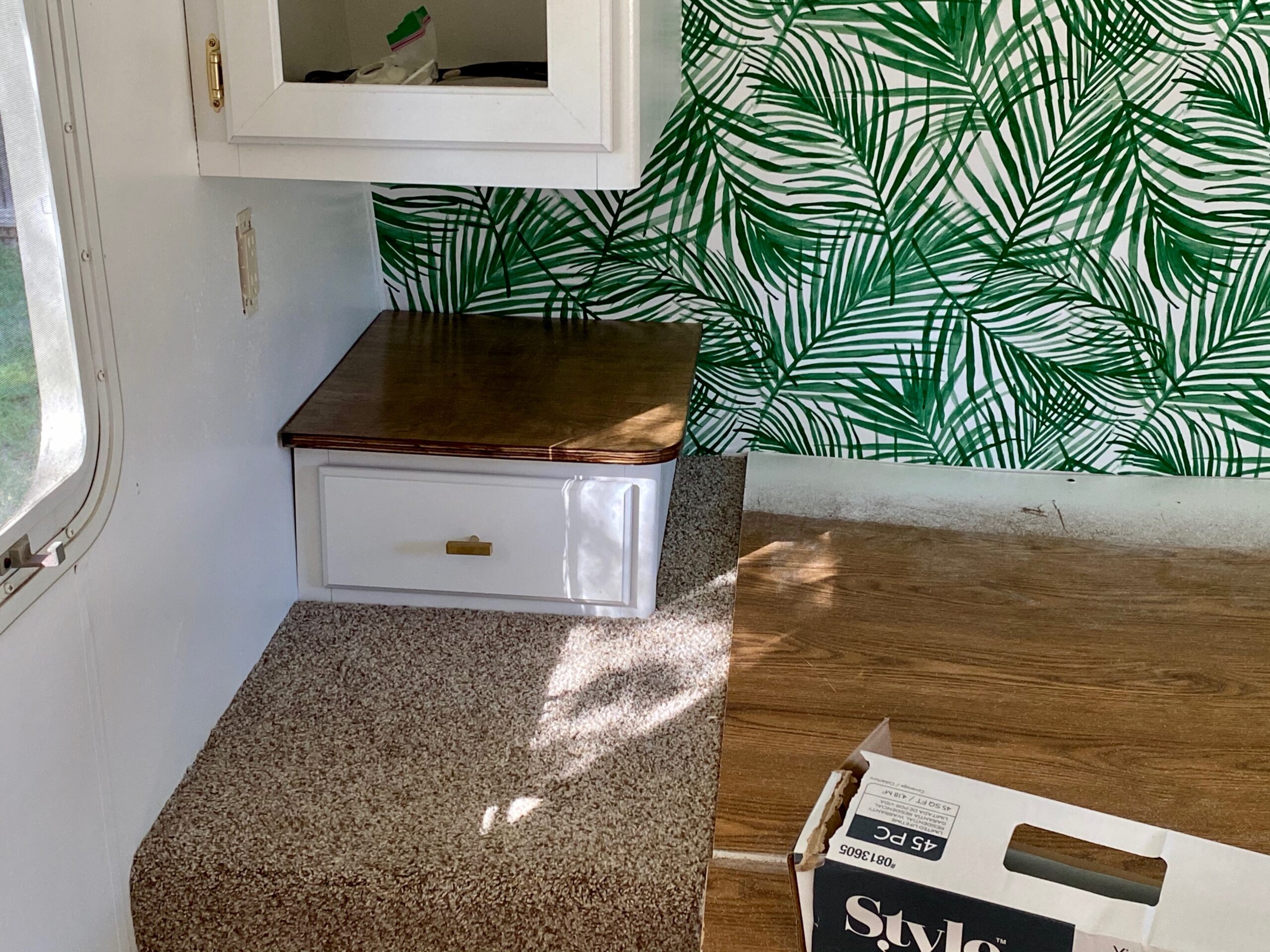The market for recreational vehicles (RVs) has experienced significant growth in recent years. However, potential buyers often wonder whether RVs lose their value over time and how the depreciation of these vehicles compares to other automobiles. Understanding the rate at which RVs lose value can help prospective owners make informed decisions about their purchases.
Depreciation is the natural process that occurs when vehicles lose their value over time, due to factors such as age, wear and tear, and market fluctuations. For RVs, this depreciation can vary based on the class and type of RV in question. For instance, it has been observed that Class A rigs lose 30% of their value after only three years of ownership, while Class C RVs lose around 38% of their value after five years. As a result, it is essential for buyers to be aware of these factors and consider how they may affect their investment and future resale prospects.
Understanding RV Depreciation
RV depreciation refers to the decrease in an RV’s value over time. It’s an essential factor for RV owners to understand, as it affects not only the resale value of the RV but also the potential return on investment. In this section, we’ll explore the factors affecting RV depreciation and look at typical RV depreciation rates.
Factors Affecting RV Depreciation
Several factors determine how quickly an RV loses value. Some of these factors are:
- Age: As an RV gets older, it inevitably loses value, with the most significant depreciation happening in the first few years of ownership.
- Condition: The overall state of the RV, including maintenance and wear and tear, plays a significant role in its depreciation. A well-maintained RV holds its value better than one with obvious damage or repair needs.
- Make and Model: Like cars, some RV brands and models hold their value better than others. Doing research beforehand can help you choose a quality RV with a slower depreciation rate.
- Usage: How frequently the RV is used impacts depreciation. A heavily used RV generally depreciates faster than one that is occasionally used.
RV Depreciation Rates
RVs generally depreciate at different rates depending on their type, age, condition, and other factors. Here are some average depreciation rates to consider:
- First year: An RV can lose between 15-30% of its initial value the moment it’s driven off the dealership lot. This percentage can be higher or lower depending on the specific RV.
- Next 5-6 years: Most RVs are worth about half their original purchase price within 5-6 years. During this period, the rate of depreciation slows down compared to the first year.
- Beyond 5-6 years: After the initial 5-6 years, RVs depreciate at a rate of about 5% per year. This rate will typically continue until the RV reaches 15-20 years old, at which point it will have almost fully depreciated to its scrap value.
Understanding RV depreciation rates and the factors that affect them allows RV owners to make informed decisions regarding the purchase, maintenance, and potential resale of their recreational vehicles.
The Impact of Covid-19 on RV Value
The Covid-19 pandemic has affected various industries, including the recreational vehicle (RV) market. During the initial phases of the pandemic, many RV owners found themselves facing challenges related to the depreciation of their vehicles. However, as time went on, aspects of the RV market experienced a surge in demand, ultimately impacting RV values in various ways.
Class A and Class C RVs, as well as fifth wheels, tend to lose a significant amount of their value in the first few years of ownership. For example, Class A rigs lose 30% of their value after only three years, while Class C RVs lose about 38% of their value after five years. Fifth wheels lose around 45% of their value after five years of ownership. In comparison, smaller RVs like travel trailers hold onto their value a little better.
With the onset of the Covid-19 pandemic, many campgrounds were closed due to shutdowns and shelter-in-place orders, which affected RV users’ ability to travel and use their vehicles. By late April, 46% of the listed campgrounds on Campendium were closed due to the pandemic. This led to lower demand for RVs and the potential for further depreciation in their value.
However, as the pandemic continued, people began to seek alternative ways to travel safely while maintaining social distancing, leading to increased demand for RVs. Despite the rise in gas prices, sales of RVs remained strong, dropping only slightly. This increased demand helped maintain RV values, with some buyers even experiencing difficulty finding available units for purchase.
In conclusion, the Covid-19 pandemic has had both positive and negative impacts on RV values. While initial shutdowns and travel restrictions led to a decrease in demand and the potential for depreciation, the surge in demand for alternative travel options has helped maintain and, in some cases, increase the value of RVs.
The Role of Maintenance in RV Value Retention
Proper maintenance plays a crucial role in preserving the value of an RV. By taking good care of your vehicle, you can help prevent the rapid depreciation commonly associated with RVs. This section will discuss the importance of proper storage and regular check-ups in maintaining your RV’s value.
Proper Storage and its Role in Value Retention
Proper storage is essential for maintaining your RV’s value. When not in use, RVs should be stored in a covered location, protected from harsh weather conditions, extreme temperatures, and sun exposure. This will help prevent fading, rusting, and damage to various components. Furthermore, ensure your RV is clean and dry before storing it to prevent the growth of mold and mildew, which can significantly affect its resale value.
Some storage tips for retaining your RV’s value include:
- Parking your RV on a level surface to avoid strain on the tires and suspension system
- Placing tire covers or UV-protective coatings on the tires to protect them from sun damage
- Using breathable RV covers that allow moisture to escape, preventing mold and mildew buildup
Importance of Regular Check-Ups
Regular check-ups are crucial to maintaining the value of your RV. Bringing your RV to a certified service center or a technician experienced in RV maintenance can help extend its life and prevent the need for costly repairs. Additionally, keeping a record of your RV’s maintenance history can improve its resale value, as potential buyers will appreciate the attention given to the vehicle’s upkeep.
Key components to check during regular maintenance include:
- Engine: Oil changes, fluid levels, and filter replacements should be performed according to the manufacturer’s recommendations
- Tires: Tire pressure, alignment, and tread checks should be conducted regularly to ensure safe driving and reduce wear
- Roof: Inspect the RV’s roof for any leaks, cracks, or damage, and seal or repair as needed to prevent water damage
- Batteries: Check the health of your RV’s batteries and replace them if necessary, as dead batteries can lead to a myriad of problems
In conclusion, taking proper care of your RV through adequate storage and maintenance can play a vital role in retaining its value. By regularly checking components and providing necessary upkeep, owners can mitigate potential issues, ultimately preserving the RV’s resale value for years to come.
Buying vs. Renting an RV
Cost Considerations
When considering whether to buy or rent an RV, it’s important to weigh the initial costs and the long-term value. RVs tend to lose a significant amount of value once they are driven off the dealership lot, with an average depreciation of 20-30% in the first year alone. After the first year, depreciation rates slow down, but they still affect the overall value of the RV.
Renting an RV, on the other hand, does not require a substantial upfront investment. There is still a per-day cost associated with renting, but it may be a more affordable option for those who are only planning short-term trips or occasional vacations.
It is also important to remember that additional costs, such as maintenance, insurance, and storage, are associated with owning an RV. Renters typically do not need to worry about these expenses, as they are included in the rental price.
Usage Frequency
Another factor to consider when deciding between buying and renting an RV is how often you plan to use it. Frequent usage may help justify the investment in purchasing an RV, despite the depreciation and additional costs. On the other hand, if you don’t anticipate using the RV often, renting might be the better decision.
To determine if buying an RV is more cost-effective, consider how much you would be paying in rental fees for the amount of time you plan to use it. For some, owning an RV is less expensive when factoring in the number of days the RV will be used, even when considering depreciation, insurance, and other costs.
In conclusion, deciding whether to buy or rent an RV depends on several factors, including cost considerations and usage frequency. By carefully examining your financial situation and travel plans, you can make an informed decision about the best option for you.
Future Outlook on RV Values
The RV market has experienced significant fluctuations in recent years, with prices steadily rising in the past and showing no signs of slowing down in 2023 according to Ecocampor. There are several factors contributing to the changes in RV values that will continue to shape the industry’s future outlook.
Inflation is one factor affecting RV prices. As the cost of raw materials and labor increases, manufacturers pass these costs onto consumers, resulting in higher RV prices. With expectations that inflation may continue in the upcoming years, it is reasonable to assume that RV prices may continue to rise in response.
Additionally, supply and demand dynamics in the market strongly influence RV values. Increased production capacities from manufacturers may help alleviate some of the upward pressure on prices. As more units become available, it can be expected that the supply of new and used RVs will increase in the future.
The popularity of specific RV classes can also impact their values. For example, Class B motorhomes have been in high demand, likely due to concerns about fuel prices. Consequently, the prices for Class B motorhomes have not experienced the same decreases as other RV classes.
The overall economic conditions and consumer confidence will undeniably play an essential role in the future outlook for RV values. In times when the economy is performing well, and consumers have more disposable income, they may be more willing to invest in RVs, driving up values. However, if a recession or other economic downturn were to occur, as some analysts have speculated based on RV sales, RV values could potentially decline in response.
In summary, the future outlook on RV values will depend on a combination of factors, including inflation, supply and demand, consumer preferences, and overall economic performance. Keeping a close eye on these factors can help potential buyers make informed decisions when it comes to investing in an RV.
Conclusion
RVs, like most vehicles, do experience depreciation over time. In fact, they can lose a substantial portion of their value within the first few years of ownership. A new RV can lose approximately 21% of its purchase price the moment it is driven off the lot. This percentage can vary depending on factors such as the make and model of the RV, and how well it is maintained.
Different types of RVs experience different rates of depreciation. For instance, Class A rigs lose 30% of their value after only three years, while Class C RVs lose about 38% of their value after five years. On the other hand, smaller RVs like travel trailers tend to hold onto their value better in comparison.
Depreciation continues over the years, with an RV generally losing 60% or more of its initial purchase price in ten years. However, there are ways to slow down the depreciation process, such as proper maintenance, timely repairs, and keeping the RV clean.
Ultimately, it is important for potential RV buyers to be aware of the depreciation factor and to consider their own financial situation and needs when deciding on purchasing a new or used RV. By carefully considering these factors and being knowledgeable about the RV market, buyers can make informed decisions and enjoy the many experiences that RV ownership has to offer.
Frequently Asked Questions
What factors affect RV depreciation rates?
Several factors can affect RV depreciation rates, including the make and model, age, condition, mileage, and overall demand for that particular type of RV. Additionally, market trends and economic conditions can impact RV depreciation rates as well. It is essential to research and be aware of these factors when buying or selling an RV to make informed decisions.
How is the resale value of an RV calculated?
The resale value of an RV is calculated by considering a combination of factors, such as the make, model, age, condition, mileage, and any additional upgrades or features the RV might have. Market conditions and demand for the specific type of RV can also influence the resale value. It is beneficial to research similar RVs for sale and consult with industry experts and valuation guides to get an accurate estimation of the resale value.
Is the used RV market experiencing a decline?
The used RV market can fluctuate based on several factors, including economic conditions, regional demand, and the overall popularity of RV travel. It is crucial to stay informed about the market and regional trends when buying or selling a used RV to understand its value accurately.
What role does IRS depreciation life play in RV value?
The IRS depreciation life is the Internal Revenue Service’s estimation of the useful life of an asset, including RVs, for tax purposes. This depreciation schedule comes into play when an RV is used for business purposes and can affect the value of the RV from a tax deduction standpoint. However, it may not directly influence the resale value in the open market.
Are there expectations of RV prices decreasing in 2024?
It is challenging to predict exact future trends in RV prices, as they depend on various factors such as overall market conditions, demand, and economic circumstances. It is essential to stay updated on current trends to make informed decisions about buying or selling RVs.
How do market trends influence the value of used RVs?
Market trends can significantly impact the value of used RVs, as changing preferences, economic conditions, and regional demands can either help retain value or cause a decline in worth. An increase in demand for RVs or a specific type of RV can lead to higher resale values, while a decrease in popularity or an economic downturn can lead to a saturation of used RVs on the market and decreased values. Monitoring market trends and regional demands can help in understanding the value of used RVs.






